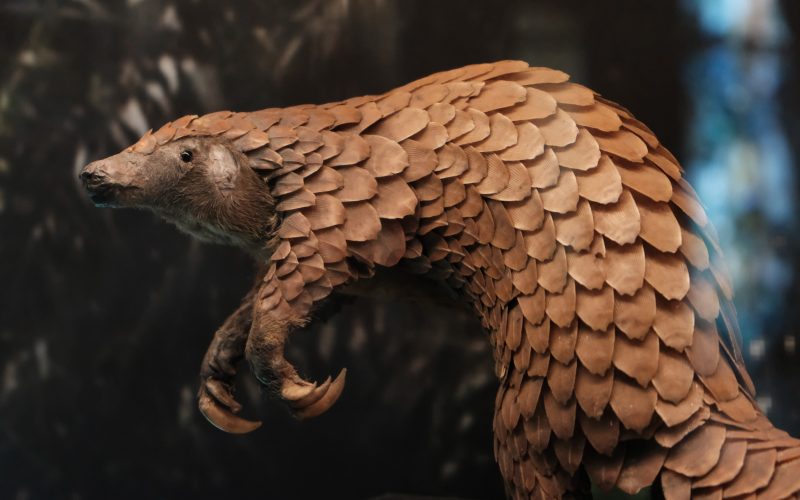Pangolins are fascinating creatures that have captured the attention of the world. These small, scaly mammals are found in parts of Asia and Africa and are known for their unique appearance and behavior. Unfortunately, pangolins are also the most trafficked mammal in the world. Here, we explore the plight of pangolins and the efforts being made to protect them.
Pangolins are unique creatures with a distinctive appearance. They are covered in scales, which are made of keratin, the same material as human hair and nails. When threatened, pangolins curl up into a ball, using their scales as armor to protect themselves from predators. They have long, sticky tongues that they use to catch ants and termites, their primary food source.
Despite their fascinating characteristics, pangolins are facing a grave threat. They are hunted for their meat and scales, which are used in traditional medicine and as a luxury food item in some cultures. Pangolin scales are also used in jewelry and other decorative items, and their meat is considered a delicacy in some parts of the world.
As a result of this demand, pangolins are being trafficked at an alarming rate. According to the International Union for Conservation of Nature (IUCN), pangolins are the most trafficked mammal in the world, with all eight species of pangolin facing a high risk of extinction.
The illegal trade in pangolins is a complex issue that involves organized crime networks and corruption at every level. Poachers hunt pangolins in their natural habitat, and then smuggle them out of the country to be sold on the black market. The trade is difficult to regulate because pangolins are easy to transport and can be sold for high prices.
Fortunately, there are efforts being made to protect pangolins and curb the illegal trade. In 2016, the Convention on International Trade in Endangered Species (CITES) passed a resolution to increase protections for pangolins. Many countries have also enacted laws to ban the trade in pangolin products.
Non-governmental organizations (NGOs) are also working to raise awareness about the plight of pangolins. The Save Pangolins organization, for example, is dedicated to raising awareness about the illegal trade in pangolins and supporting conservation efforts to protect them.
In addition, some communities in Africa and Asia are working to protect pangolins in their natural habitats. For example, in Uganda, the Tikki Hywood Foundation is working with local communities to promote the conservation of pangolins and their habitats.
Protecting pangolins is not just important for the survival of this unique species, but for the health of ecosystems in which they live. Pangolins play an important role in controlling ant and termite populations, which in turn helps to maintain a healthy balance in the ecosystem.
In conclusion, the plight of the pangolin is a complex issue that requires a multifaceted approach to address. By increasing awareness about the illegal trade in pangolins, supporting conservation efforts, and promoting sustainable practices, we can help protect these fascinating creatures and preserve the biodiversity of our planet.












